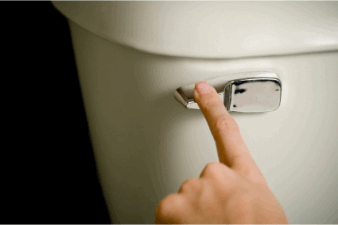 Physicians continue to see their collections, cashflow and emotions whipped around like a rag doll in the mouth of a rottweiler. Congress failed to act before the June 1, 2010 deadline. Once again physicians are "officially" under a new Medicare fee schedule that has an average reduction of over 21%. In reaction, Medicare will once more hold claims for the first 10 business days of the month (for June dates of service).
Physicians continue to see their collections, cashflow and emotions whipped around like a rag doll in the mouth of a rottweiler. Congress failed to act before the June 1, 2010 deadline. Once again physicians are "officially" under a new Medicare fee schedule that has an average reduction of over 21%. In reaction, Medicare will once more hold claims for the first 10 business days of the month (for June dates of service).
Physicians are being told that this 10 business day hold will have a minimal impact on their collections. This is not accurate, however, since Medicare is not holding the payments for 10 business days; rather they are holding the processing of the claims for 10 business days. It makes sense to hold the processing since if Congress negates the 21% pay cut then Medicare would need to reprocess the claims. This approach means, however, that at the end of the ten business day hold, Medicare will drop the full amount of held claims into the processing hopper and then the normal time line will begin (in other words, do not expect a big Medicare check on June 15th - which is the 11th business day of June). The bottom line is that unless Congress acts swiftly and thus Medicare begins to swiftly process claims, most physicians will see a big dip in their Medicare collections in June (since the payments typically seen in the last two weeks of a month are from dates of service in the first part of the month).
Here is the full text of the Medicare announcement (from the Trailblazer Website):
"The Continuing Extension Act of 2010, enacted April 15, 2010, extended the zero percent update to the 2010 Medicare Physician Fee Schedule (MPFS) through May 31, 2010. CMS believes Congress is working to avert the negative update scheduled to take effect June 1, 2010. To avoid disruption in the delivery of health care services to beneficiaries and payment of claims for physicians, non-physician practitioners and other providers of services paid under the MPFS, CMS has instructed its contractors to hold claims containing services paid under the MPFS (including anesthesia services) for the first 10 business days of June. This hold will only affect MPFS claims with dates of service on or after June 1, 2010. This hold should have minimum impact on provider cash flow because, under the current law, clean electronic claims are not paid any sooner than 14 calendar days (29 for paper claims) after the date of receipt. Be on the alert for more information about the 2010 MPFS update."
_____________
Copyright 2010 by Carl Mays II. Carl is President and CEO of ClaimCare Medical Billing Service, one of the largest medical billing companies in the United States.

 You may be faced with multiple fee options if you are considering seeking help with your
You may be faced with multiple fee options if you are considering seeking help with your  Medical billing offices / Managers often find themselves in need of extra "helping hands" for a variety of reasons including:
Medical billing offices / Managers often find themselves in need of extra "helping hands" for a variety of reasons including:
 Mark Twain said, "The only difference between a tax man and a taxidermist is that the taxidermist leaves the skin." That's the way many small business owners feel nowadays, with proposed increases in taxes, along with mandates and increases in health insurance. Just the other day, one business owner reminded me of the Will Rogers quote, "The difference between death and taxes is death doesn't get worse every time Congress meets."
Mark Twain said, "The only difference between a tax man and a taxidermist is that the taxidermist leaves the skin." That's the way many small business owners feel nowadays, with proposed increases in taxes, along with mandates and increases in health insurance. Just the other day, one business owner reminded me of the Will Rogers quote, "The difference between death and taxes is death doesn't get worse every time Congress meets." 

 On the occasions when I tell Jean something such as, "I'm going to the post office, drop by the pharmacy, then on to the bank, and I may swing by the hardware store on the way back," she often replies with something like, " Well, maybe I'll see you again today." She knows when I "go out" there is no telling how many people I will run into and strike up a conversation with - and just how long I may be gone - unless I have a definite time by which I must return.
On the occasions when I tell Jean something such as, "I'm going to the post office, drop by the pharmacy, then on to the bank, and I may swing by the hardware store on the way back," she often replies with something like, " Well, maybe I'll see you again today." She knows when I "go out" there is no telling how many people I will run into and strike up a conversation with - and just how long I may be gone - unless I have a definite time by which I must return.  Without any intention to sound like a broken record... there is yet more data indicating how critical it is for medical practices to have a solid patient collection process in place. A new survey indicates that health savings accounts are growing in popularity. Both the number of accounts and the amount of money in those accounts are growing at a significant rate. A recent study from Celent, a consulting company that works with banks, showed that the number of HSAs increased 46.1 percent between January 2008 and January 2009, and the money in HAS accounts grew by 62.6 percent. HSA accounts have an average account balance of $1,561. This number is likely significantly understated because most banks do not consistently purge inactive, zero-balance accounts.
Without any intention to sound like a broken record... there is yet more data indicating how critical it is for medical practices to have a solid patient collection process in place. A new survey indicates that health savings accounts are growing in popularity. Both the number of accounts and the amount of money in those accounts are growing at a significant rate. A recent study from Celent, a consulting company that works with banks, showed that the number of HSAs increased 46.1 percent between January 2008 and January 2009, and the money in HAS accounts grew by 62.6 percent. HSA accounts have an average account balance of $1,561. This number is likely significantly understated because most banks do not consistently purge inactive, zero-balance accounts.  When this true story appeared in a Florida newspaper and was sent to me a few weeks ago, I filed it away and said, "This is definitely something I must share with my readers."
When this true story appeared in a Florida newspaper and was sent to me a few weeks ago, I filed it away and said, "This is definitely something I must share with my readers."  Are you average? Could it be you are above average? Or, is it possible you are in a category labeled as below average? Now, before you think too seriously about responding to these questions, you need to ask in return, "Am I average, above average or below average in WHAT? Ahhh... therein lies the important question.
Are you average? Could it be you are above average? Or, is it possible you are in a category labeled as below average? Now, before you think too seriously about responding to these questions, you need to ask in return, "Am I average, above average or below average in WHAT? Ahhh... therein lies the important question.